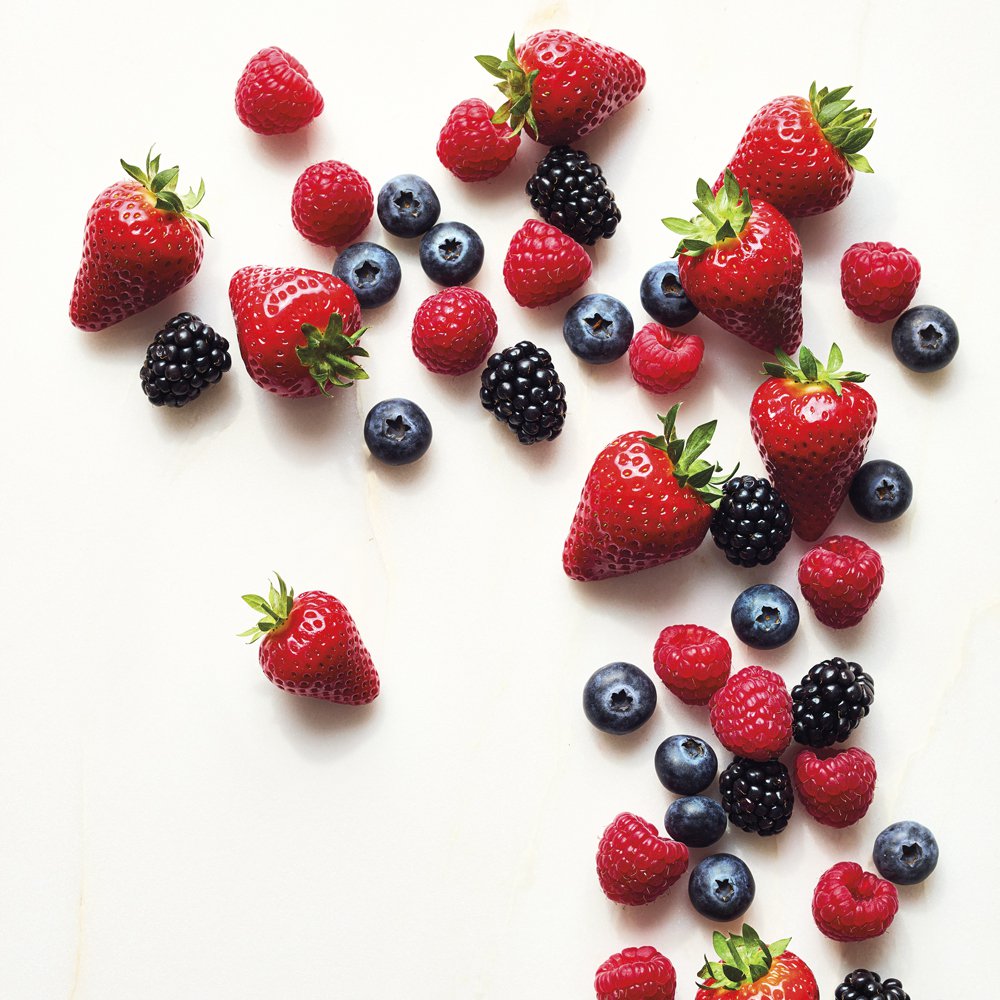One small change: eat more berries

A handful of fresh berries is hard to beat: sweet, juicy and delicious, it also packs a powerful health punch. Berries are loaded with vitamins, minerals and plant chemicals – and increasingly linked to all kinds of benefits, with each type bringing different positives to the party.
A cluster of recent studies has shown that eating more berries in midlife can improve your life expectancy and decrease the risk of heart attack. They might even help keep your brain sharp. A study into women in their seventies and older showed that eating berries at least once a week helped delay cognitive ageing by up to two and a half years.
So what makes them special? “Berries contain high levels of antioxidants in the form of polyphenols – specifically anthocyanins, flavanols and phenolic acids – which vary in concentration depending on the berry type,” says Rhiannon Lambert, registered nutritionist and author of The Science of Plant-Based Nutrition.
“These antioxidants protect the body’s cells from damage, preventing inflammation and oxidative stress, which in turn reduces the risk of the development of chronic diseases such as cancer.” The deeper the red, purple or blue colour of the fruit, the higher the amounts of these compounds. Berries also support good gut health and strong immunity. “Bacteria in our gut break down polyphenols into smaller compounds, which boost microbial diversity and benefit our health in many ways,” says Catherine Rabess, registered dietitian and author of
The 30 Plan. A review of studies published in the Journal of Human Nutrition and Dietetics showed that polyphenols can boost levels of ‘good’ bacteria – which help to prevent disease and provide anti-inflammatory effects – while also reducing numbers of ‘bad’ bacteria.
The fibre in berries is also beneficial for gut health. “Fibre nourishes good bacteria and keeps the gut thriving. It also slows down the rate of digestion, steadying the release of sugar into your bloodstream and offering a longer-lasting energy boost,” adds Catherine.
Different berries offer different benefits. Strawberries, for instance, are rich in antioxidants, especially vitamin C; around seven strawberries (80g) contain more than your daily requirement. Blackberries are also a useful source of vitamin C, as well as vitamin E and manganese. Like to work out?
If any berry has it all, it’s the blueberry”
Grab a handful of cherries. These red fruits may help reduce muscle soreness and accelerate recovery after intense exercise, according to a study published in Applied Physiology, Nutrition and Metabolism. Raspberries, meanwhile, contain a surprising amount of fibre – just 80g provides 5g or one sixth of your recommended daily 30g – not to mention vitamin C and manganese.
If any berry has it all, however, it’s the blueberry. According to a study in The American Journal of Clinical Nutrition, eating the equivalent of a handful of blueberries daily for three months produced a host of health benefits, including improved memory and brain function, lower blood pressure and faster reaction times in people aged 65-80.
Worried about the sugar content? Don’t be. If you eat your fruit in its ‘whole’ form (see panel, left), you’ll avoid any sugar ‘spikes’. In fact, certain fruit may help reduce blood-sugar responses after a meal. A study in the journal Obesity found that people with pre-diabetes who included at least 125g raspberries in their breakfast had lower blood sugar and insulin responses than those who consumed the same breakfast without the addition of berries.
Like all produce, berries are at their most nutritious when they’ve just been picked, so make the most of them while in season. But all is not lost come winter: frozen berries contain similar levels of vitamins and polyphenols to fresh ones.
SMOOTHIE, JUICE OR WHOLE FRUIT?
Eating fruit whole is generally best for your health since you’re getting all the fibre along with the nutrients. This is less likely to produce a sharp rise in blood sugar. When you juice or blend fruit into smoothies, the natural sugars are released from within the cell walls of
the fruit and become ‘free sugars’. These are absorbed more quickly into your bloodstream, which in some people may lead to blood sugar spikes that, over time, may increase the risk of type 2 diabetes. Juicing also removes most of the fibre and, therefore, many of the gut-health benefits. Smoothies and juices are a convenient way of adding fruit to your diet; just remember according to experts they can count as no more than 1 of your 5 a day, regardless of the number of different types of fruit or vegetables blended into them.
”
